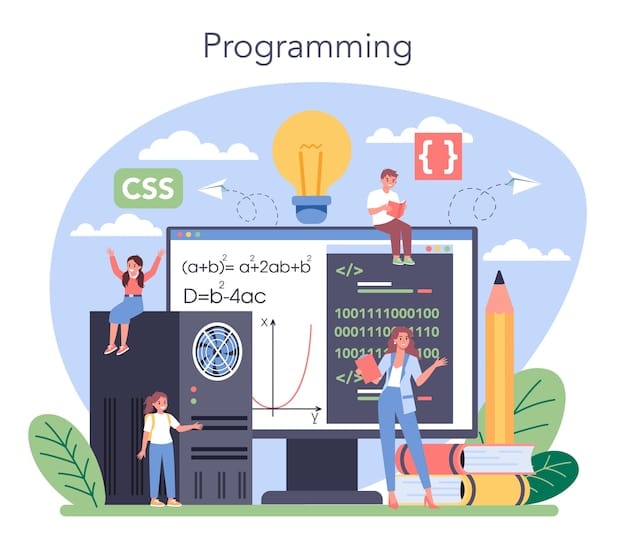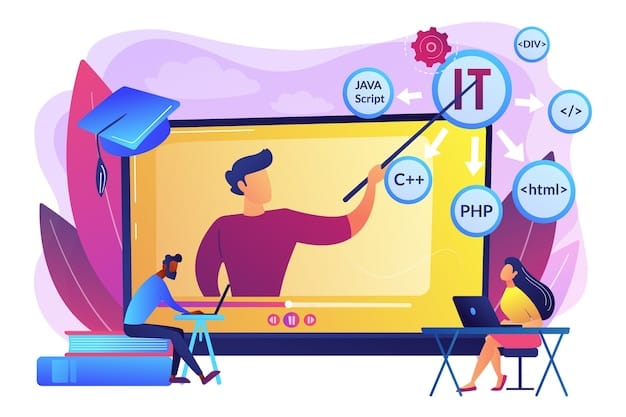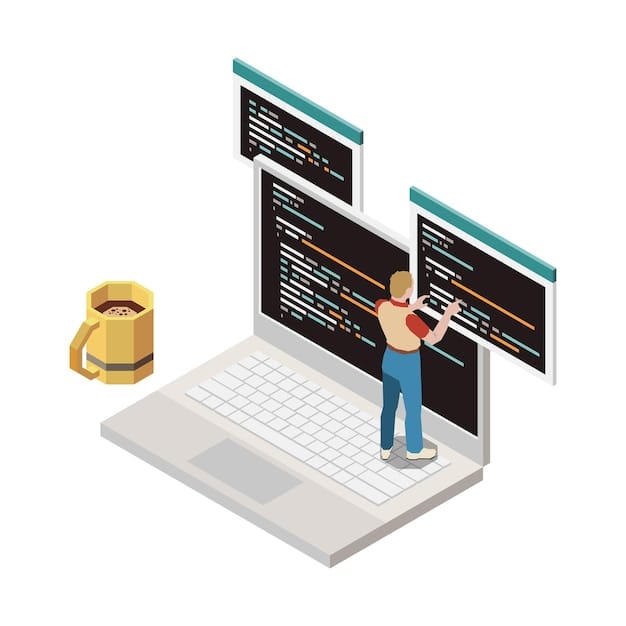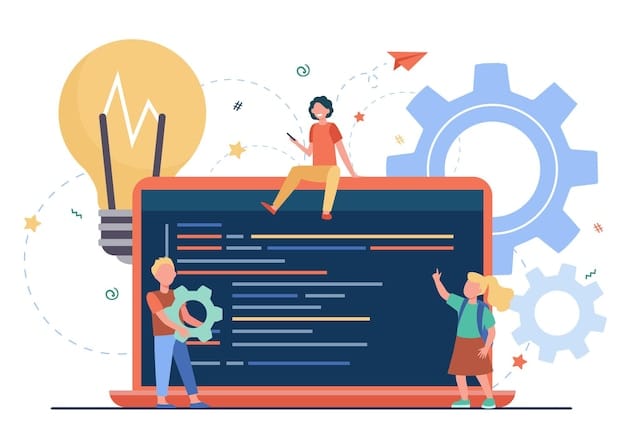5 Keys for Kids to Excel in Online Mathematics Classes
5 Keys for Kids to Excel in Online Mathematics Classes
"Why do some kids excel in online math, while others fall behind? Uncover the answer to five strategies that make all the difference."
The answer to complicated problems lies in mastering five essential strategies. By implementing these keys, students can transform their online math experience from challenging to triumphant. Let's explore these strategies to unlock your child's full potential in math courses the virtual classroom.

In today's rapidly evolving educational landscape, online mathematics classes have become a game-changer, offering students unparalleled flexibility and access to a treasure trove of resources. Imagine a world where your child can explore various mathematical problems and concepts from the comfort of your living room, perhaps with a cup of hot cocoa in hand. Sounds delightful, doesn't it? However, to truly thrive in these online math courses, it's essential to embrace strategies tailored to the unique dynamics of virtual learning. Let's embark on this journey together!

Understanding the Framework: How Do Online Math Classes Work?
Online math classes are more than just videos and assignments; they're immersive experiences designed to make learning engaging and effective. Interaction, or the lack thereof, posed another challenge. In traditional classrooms, I could easily raise my hand to ask a question or discuss problems with peers. In the online realm, I had to adapt to forums and chat rooms. Initially, posting questions felt impersonal, but over time, I found that these platforms offered diverse perspectives, enriching my understanding of various math concepts. This shift in interaction aligns with the experiences of other online learners who have navigated the nuances of virtual communication:

Real-Time Interactions: Picture your child participating in live sessions, where they can chat directly with instructors, ask questions on the spot, and feel like they're part of a vibrant classroom—minus the commute.
Self-Paced Learning: Life can be hectic, and sometimes schedules don't align. No worries! With recorded lectures and a plethora of supplementary materials, your child can revisit tricky topics or get ahead, all at their own pace.
Interactive Tools: Think virtual whiteboards for doodling out equations, quizzes that feel more like games, and discussion forums buzzing with ideas. These features transform learning math into an adventure rather than a chore.
This blend caters to diverse learning styles, allowing students to progress comfortably and develop robust mathematical skills.
Building the Right Mindset: How to Excel in Maths
A positive attitude towards science and mathematics can make all the world difference:
Celebrate Small Wins: Did your child finally grasp that pesky fraction problem? Time for a mini dance party! Recognizing and celebrating these moments boosts confidence and keeps the motivation soaring.
Practice Regularly: Remember the old saying, "Practice makes perfect?" This is true, especially for math. Encourage your child to tackle a few problems daily to reinforce understanding and build muscle memory for problem-solving techniques.

Embrace Challenges: Instead of shying away from complex problems, let's view them as exciting puzzles waiting to be solved. This mindset fosters resilience and a deeper appreciation for mathematical concepts.
By nurturing this approach to algebra, students can overcome anxieties associated with mathematics and lay a solid foundation for advanced algebra learning.
Creating an Engaging Study Environment in Online Mathematics Classes for Kids
Engaging with online resources was both a boon and a bane. The plethora of materials available at my fingertips was overwhelming at times. for example, I recall spending hours sifting through various websites, trying to find the perfect explanation for the Pythagorean theorem. Eventually, I learned to identify reputable sources and stick to them, which streamlined my study process.The right environment can significantly enhance your ability to focus and productivity:
Dedicated Study Space: Set up a cozy nook free from distractions, be it a corner of the dining table or a small desk in the bedroom. This signals the brain that it's "math time," helping your child concentrate better.
Structured Routine: Consistency is key. Establish a study schedule that fits your family's rhythm, ensuring regular engagement without feeling overwhelming.
Utilizing Online Resources: The internet is a goldmine for learning. Platforms like Codeyoung offer interactive lessons tailored for kids, making math both fun and informative. (Codeyoung)
Crafting such an environment supports academic success and instills lifelong learning habits.
Leveraging Advanced Features in Online Mathematics Classes for Better Results
Assessments in online courses were another area of adjustment. Without the immediate feedback of an in-person instructor, I had to rely on automated systems and delayed responses. To bridge this gap, I formed virtual study groups with fellow students. We would share our approaches to solving problems, providing immediate feedback to one another, which enhanced my learning experience.Modern online platforms come equipped with features designed to enhance learning outcomes:
Gamified Learning: Who said math can't be fun? With game-like elements, learning becomes engaging, and concepts stick longer. Imagine your child earning badges for mastering topics—learning and play combined!
Progress Analytics: Many platforms offer tools that track performance, highlighting strengths and pinpointing areas needing a bit more attention. It's like having a personalized roadmap to success.
Personalized Feedback: Instructors provide timely and constructive feedback, helping students refine their strategies and clarify any confusion.
By tapping into these features, students can tailor their learning experiences to their individual needs, improving their ability and proficiency in mathematics.
Conclusion: Unlocking Future Potential Through Online Math Classes for Kids
Embracing online mathematics classes equips students with the complete flexibility to learn at their own pace and access a plethora of resources. By understanding the complete operational framework, fostering a growth-oriented mindset, creating conducive study environments, and leveraging advanced features, students can excel in their mathematical pursuits. This holistic approach not only prepares them for academic success but also instills critical thinking and problem-solving skills essential for future endeavors.
The flexibility to learn a subject at my own pace allowed me to revisit complex mathematical concepts until I achieved a solid understanding. For instance, during a particularly long run challenging module on calculus, I found myself replaying recorded lectures multiple times, each viewing unraveling a new layer of comprehension.
However, this autonomy required a heightened level of self-discipline. Without the structured environment of a full school or physical classroom, I had to establish a dedicated study schedule to stay on track. I designated a quiet corner of my home as a study space, free from distractions, which became my sanctuary for learning. This setup mirrored the advice of educators who emphasize the importance of a conducive learning environment in virtual school settings. (AllEducationSchools.com)
Final Words:
Reflecting on this journey, I realize that online math courses demand a unique blend of independence and proactivity. The convenience is unparalleled, but it requires one to be self-motivated and resourceful. For anyone considering this path, I would advise embracing the flexibility while being prepared to actively seek out support and resources. Engaging fully with the online community can replicate, and sometimes even surpass, the collaborative spirit of traditional classrooms.
Codeyoung's interactive and fun approach to learning, supported by AI-driven adaptive learning journeys, has made mastering math an enjoyable experience. Their commitment to personalized learning ensures that every student receives the attention and support they need to succeed.
If you're looking to enhance your mathematical skills in a dynamic and supportive environment, I highly recommend giving Codeyoung a try. Their innovative methods and dedicated mentors are here to help you unlock your full potential.
Online Mathematics Classes - FAQs
1. What are the essential strategies for kids to excel in online mathematics classes?
To excel in online mathematics classes, it's crucial to establish a structured routine, actively participate in live sessions, practice regularly, and utilize available resources. A consistent schedule helps students manage their time effectively, ensuring they allocate sufficient periods for study and revision. Engaging actively during live sessions allows for immediate clarification of doubts and fosters a deeper understanding of mathematical concepts.
Regular practice reinforces learning and enhances problem-solving skills. Additionally, leveraging supplementary resources such as educational apps, online forums, and interactive tools can provide diverse perspectives and enrich the learning experience high school student. By integrating these strategies, students can build a solid understanding of basic math, and achieve academic success.
2. Can you explain how online mathematics classes work to better understand their structure?
Online mathematics classes typically combine live interactions, self-paced learning materials, and interactive tools to create a comprehensive and flexible learning environment. Live sessions, often conducted via video conferencing platforms, allow instructors to explain concepts in real-time, address student queries, and facilitate discussions.
These sessions are complemented by self-paced learning materials, such as recorded lectures, reading assignments, and practice exercises, enabling students to learn at their own pace and revisit topics as needed. Interactive tools like virtual whiteboards, quizzes, and educational apps enhance engagement and provide immediate feedback, reinforcing learning. This blended curriculum approach caters to diverse learning styles and promotes a deeper understanding of mathematical concepts.
3. What tools and resources can help children learn how to excel in maths during their online courses?
Several tools and resources can enhance children's learning experience in online mathematics courses. Virtual whiteboards facilitate interactive problem-solving, allowing students to visualize and manipulate mathematical concepts. Engaging in discussion forums provides opportunities for collaborative learning, where students can share insights and clarify doubts.
Accessing supplementary videos can offer alternative explanations and examples, catering to different learning preferences. Practising with online quizzes and interactive exercises helps reinforce understanding and track progress. Additionally, educational apps offer personalized learning experiences, providing interactive lessons and instant feedback to support students' mathematical development. These online resources can be invaluable in mastering basic math and concepts and building confidence.
4. How do online mathematics classes for kids differ from traditional math classes in terms of learning effectiveness?
Online mathematics classes offer greater flexibility, personalized learning experiences, and access to a wider range of resources compared to traditional math classes. Students can learn at their own pace, revisiting concepts as needed, which can lead to a deeper understanding.
The use of interactive tools and multimedia content caters to diverse learning styles, making learning more engaging and effective. Additionally, online platforms and courses often provide instant feedback, allowing students to identify patterns and address areas of weakness promptly. This personalized approach can lead to improved learning outcomes and greater student satisfaction.
5. What are some common challenges kids face in online mathematics classes, and how can they overcome them?
Common challenges in online mathematics classes include staying motivated, managing time effectively, and limited face-to-face interaction. To overcome these, students can set clear goals and establish a structured routine to manage their time effectively.
Engaging actively in live sessions and participating in discussion forums can help maintain motivation and provide a sense of connection. Utilizing interactive tools and resources can make learning more engaging and help clarify difficult concepts. Additionally, seeking support from teachers, peers, or tutors when needed can provide guidance and encouragement, helping students navigate challenges successfully.
6. How do interactive platforms enhance the learning experience in online mathematics classes?
Interactive platforms enhance the learning experience in online mathematics classes by engaging students through dynamic content, immediate feedback, and collaborative opportunities. T
ools like virtual whiteboards and interactive quizzes allow students to actively participate in problem-solving, reinforcing their understanding. Immediate feedback helps identify areas of weakness, enabling prompt intervention and improvement. Collaborative features, such as discussion forums and group activities, foster a sense of community and allow students to learn from each other.
These interactive elements make learning more engaging and effective, leading to better retention and application of mathematical concepts and knowledge in other ways.
7. What benefits do children gain from participating in online mathematics classes?
Participating in online mathematics classes offers children several benefits, including the development of self-paced learning habits, improved technological proficiency, and access to diverse educational resources. Learning at their own pace allows students to master concepts thoroughly before moving on, leading to a deeper understanding.
Regular use of digital tools enhances technological skills, which are essential in today's digital world. Access to a variety of resources, such as videos, interactive exercises, and educational apps, provides multiple perspectives and enriches the learning experience. These benefits contribute to a well-rounded education and prepare students for future academic and professional endeavors.
8. What is the frequency and duration of Codeyoung’s online mathematics classes?
Codeyoung's online mathematics classes typically run for 1 hour and are held 2-4 times per week, offering flexible scheduling options to accommodate your child's busy schedule.
This frequency allows for consistent learning while providing ample time for practice and revision. The duration of each class ensures that concepts are covered thoroughly without overwhelming students, promoting effective learning and retention.
This flexible approach to curriculum caters to individual needs and helps maintain a balanced academic workload
Comments
Your comment has been submitted